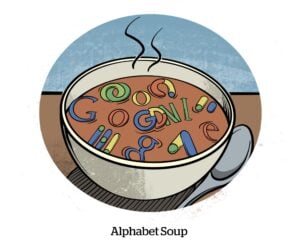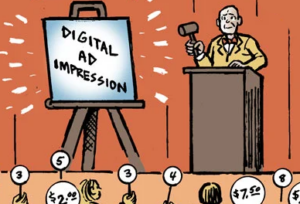 Triggit, known to many as the “Facebook-only” retargeting firm, is taking on native ads outside the Facebook platform.
Triggit, known to many as the “Facebook-only” retargeting firm, is taking on native ads outside the Facebook platform.
The company is courting publishers with the promise to support their native advertising formats and bring the kind of in-stream ad experiences it has run in Facebook’s news feed over the past year to a wider range of supply sources. Its pitch to those publishers, according to CEO Zach Coelius: “We can fill your remnant inventory at very high CPMs – $5 to $10 CPMs – and hit your revenue targets.”
“Remnant” and “native” are not frequently found in the same sentence, but that may change as every publisher – from news organization to gaming app developers – climbs aboard the native gravy train and native advertising becomes a commodity.
After two years positioning around retargeting campaigns on Facebook and one year buying ad space in the Facebook news feed, Coelius said, “We wanted more inventory. So we’re going to big publishers, saying we’d love to do news feed-type ads.”
He says Triggit is ready to power hundreds or even thousands of distinct native formats of the sort that have proven effective for Facebook. But he declined to name publishers or advertisers involved in the test.
However, when native advertising comes up in casual conversation, one has to ask, “which native?” Is it the editorially driven native, powered by publisher-run content studios and populated with pseudo-journalistic content creators? (BuzzFeed, Forbes and The New York Times come to mind.) Or is it the more stripped-down version of native, where a placement need only resemble the content above and below it?
Triggit is focused on the latter. “The way I define it is an ad that fits the look and feel of the publisher site,” Coelius said. By this definition, a Google search ad is the original digital native ad.
Triggit employs 60 people, and has raised $18.5 million in venture funding. Its most recent investment was a $7.4 million round in November 2012. It has been working on its native capability for the past eight months. The R&D investment has been millions, but not tens of millions, Coelius said.
The company joins a growing number of companies trying to scale native advertising for programmatic buyers of media, especially those focused on performance goals. Others include AdsNative, TripleLift and Nativo. But what makes its entry a surprise is the fervor with which the company and its CEO pursued the Facebook opportunity up until now.
When did Triggit realize its exclusive positioning around retargeting on Facebook was a mistake?
Coelius rejects the question.
“That’s not the way we’d see it,” he said. “Our bet on Facebook was awesome. Our advertisers always want more. They’d like more volume and inventory. We’ve been looking for ways to be able to get them more.”
Coelius says Triggit tripled its 2013 gross media revenue compared to 2012 on the back of Facebook Exchange. AdExchanger previously estimated its 2012 gross billings at $40 million to $60 million and its 2013 billings at $80 million to $100 million, based on public statements the company has made. And the company is on track to double revenue again in 2014. Going with those earlier estimates as a baseline, that would put its gross media revenue this year at $160 million to $200 million. (Update: Coelius says the dollar figure estimates above are too high.)
It has 200 advertiser customers, primarily in the retail and travel sectors, with an emphasis on recurring revenue.
“The retargeting business is like the SaaS business,” he said. “It’s not IO to IO. They’re constantly adjusting and changing things and it’s an evergreen budget.”
And yet Triggit, along with every other demand-side platform working on Facebook Exchange, has been blocked from buying mobile inventory – inventory Facebook has reserved for its own direct-to-advertiser program. And for players like Triggit, that’s a problem.
“Yes, I would hope the leadership at Facebook would be willing to open up,” he said. “But for any business you have strategic considerations.”
Facebook has evidently made its choice, and so has Triggit.













